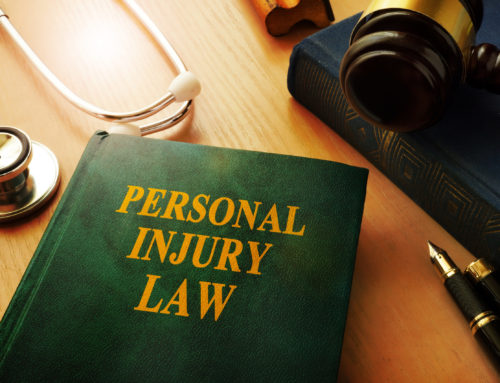Common Types of Neighbor Disputes
1. Property Line and Boundary Disputes
Boundary disputes occur when neighbors disagree about where one property ends and another begins. Issues can arise from fences, driveways, gardens, or even sheds crossing property lines. Such conflicts often create long-term tension if not addressed early. Solution:- Review your property survey or hire a professional surveyor.
- Understand local property line laws and zoning regulations to strengthen your position.
- Open a respectful dialogue with your neighbor to find a peaceful resolution.
- If discussions fail, consult an attorney to protect your property rights.
2. Property Damage Issues
Damage caused by a neighbor’s activities, like a fallen tree damaging your home or construction-related destruction, can lead to expensive repairs and frustration. Solution:- Document the damage with detailed photos and records.
- Speak to your neighbor about compensation and repairs.
- If needed, seek legal action to recover repair costs and prevent future incidents.
3. Noise Complaints and Disturbances
Noise disputes include loud parties, barking dogs, frequent renovations, or general disturbances that interfere with your ability to enjoy your home. Solution:- Politely address the issue with your neighbor and suggest reasonable solutions.
- Keep a log of dates, times, and types of disturbances.
- If noise persists, review local noise ordinances and involve authorities or legal support.
4. Animal-Related Conflicts
Pets and livestock can damage property, threaten safety, or cause significant noise. Common complaints include pets trespassing, barking, or creating unsanitary conditions. Solution:- Discuss your concerns directly with your neighbor.
- Know your local animal control laws and report repeated issues.
- In serious cases, legal action can ensure safety and property protection.
5. Shared Spaces and Amenity Disputes
Shared amenities in HOAs, condominiums, or apartment complexes often become sources of tension regarding maintenance responsibilities, costs, or misuse. Solution:- Review HOA or community agreements regarding shared spaces.
- Document maintenance issues or damage.
- If necessary, involve community management or legal counsel to enforce agreements.
6. Overhanging Trees and Plant Encroachments
Branches, roots, or plants from a neighbor’s property crossing onto yours can cause damage and impact your enjoyment of your land. Solution:- Request your neighbor trims the overhanging trees or plants.
- If they decline, you generally have the right to trim back vegetation within your property line.
- Always document interactions and damage to support your rights.
7. Improper Parking and Vehicle Issues
Neighbors who block driveways, park illegally, or leave abandoned vehicles can create both inconvenience and conflict. Solution:- Communicate politely about your concerns.
- Document violations with photos and notes.
- Contact authorities if the behavior continues or creates safety hazards.
8. Party Wall and Construction Conflicts
Shared walls in townhouses and condominiums require careful management. Renovations without consent or causing structural damage are common sources of conflict. Solution:- Request written notice and consent for any construction impacting shared walls.
- Keep records of damages and communications.
- In case of damage, seek legal advice to protect your investment.
9. Building Code Violations
Non-compliance with building codes by a neighbor can create serious safety risks for adjacent property owners. Solution:- Report violations to the local code enforcement office.
- Keep thorough documentation and follow up if no action is taken.
- A real estate attorney can help escalate unresolved violations.
Potential Consequences of Neighbor Disputes
Ignoring or mishandling a neighbor dispute can lead to:- Tampering with property, including vandalism or landscaping damage
- Threats, harassment, or physical altercations
- Costly and drawn-out legal battles
How to Resolve Neighbor Disputes Peacefully
Step 1: Build a Positive Relationship
One often overlooked strategy is to establish a rapport with your neighbor early on. A friendly introduction and casual conversations can lay the groundwork for smoother conflict resolution later.Step 2: Keep a Detailed Log
If the problem persists, start tracking incidents. Maintain a log with dates, times, and descriptions of each occurrence. This record can clarify patterns and serve as important evidence if needed.Step 3: Communicate Calmly and Directly
Approach your neighbor with politeness and a genuine desire to resolve the issue. Use “I” statements and avoid blame. Phrases like “I’m sure you might not have realized…” can ease defensiveness and open dialogue.Step 4: Put Concerns in Writing
If verbal communication fails, send a polite letter outlining the issue, its impact, and your proposed resolution. Include any relevant laws or ordinances, if applicable. A written record often prompts more serious consideration.Step 5: Seek Support from Others
If multiple neighbors are affected, consider approaching the issue together. A respectful joint letter or collective conversation can carry more weight.Step 6: Explore Mediation Services
Community mediation offers a neutral environment to resolve disputes without escalating to court. A trained mediator helps both parties reach a fair solution.Step 7: Involve the Authorities if Necessary
If your neighbor’s actions violate local laws or pose safety risks, you may need to involve the police or local code enforcement. Documented logs and evidence can support your case.Step 8: Consult a Lawyer
When informal attempts fail, speaking to an attorney can clarify your legal rights and options. A lawyer can also send formal legal notices, which often prompt resolution.Step 9: Consider Legal Action
If the situation demands it, you can pursue action in small claims court or higher courts, depending on the nature and extent of the dispute. Legal proceedings require careful preparation and a calm, factual approach.Step 10: Focus on Moving Forward
Even after a legal victory, remember you will still live near your neighbor. Whenever possible, aim for long-term solutions that prioritize respect and peaceful coexistence.How a Lawyer Can Help Resolve Neighbor Disputes
Neighbor disputes involving property rights, safety, or significant damages often require legal expertise. A knowledgeable attorney can:- Evaluate your situation and advise on potential resolutions
- Draft and send formal legal notices to your neighbor
- Negotiate settlements or file lawsuits when necessary
- Represent your best interests in court, if needed
Get Help with Neighbor Disputes Today
Neighbor conflicts can disrupt your life, but you don’t have to face them alone. With the right legal guidance, many disputes can be resolved quickly, protecting your property, finances, and well-being. At Kelly Legal Group, we have extensive experience handling all types of neighbor disputes. Our team will work closely with you to resolve your conflict efficiently through negotiation, mediation, or litigation if needed. Contact us today to schedule your consultation and find out how we can help you regain peace of mind and protect your home.FAQs About Neighbor Disputes
What type of lawyer do I need for neighbor disputes?
You should consult a real estate attorney or a property dispute lawyer. These professionals specialize in neighbor conflicts, property rights, boundary issues, and nuisance claims.
How to handle neighbor disputes?
Start by staying calm and speaking directly to your neighbor. If communication fails, involve a third party, document all incidents, and consult an attorney if necessary.
Who can help with neighbor tree disputes?
A real estate attorney can help if your neighbor’s trees are causing damage or trespassing onto your property. They can guide you on your rights and potential actions.
Can I sue my neighbor for property damage?
Yes, if a neighbor’s actions cause damage to your property, you have the right to pursue compensation through negotiation, small claims court, or formal litigation.
What evidence should I collect for a neighbor dispute?
Keep a detailed record of all incidents, take photos of any damage, save copies of communications, and gather any official notices or reports related to the dispute.





